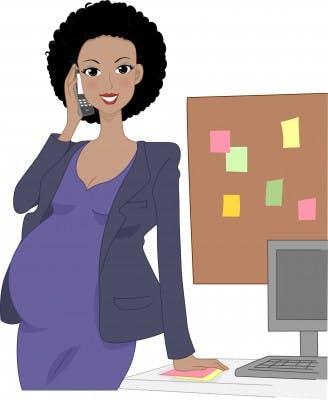In a 2008 interview with the Ladies Home Journal, Barack Obama stated that, “The best judge of whether or not a country is going to develop is how it treats its women.”
If that’s true, then it’s time to think seriously about how HR departments and corporate hiring managers treat pregnant women in the workplace.
Even though it’s 2012, pregnant women are still fighting an uphill battle against employers for their right to work. They’re being put on unpaid leave, they’re getting demoted and, far too often, they’re getting fired. According to the U.S. Equal Employment Opportunity Commission, pregnancy discrimination cases have risen by 35 percent over the past decade. In fact, it’s the cause of one in five discrimination complaints by women.
A false perception
“Pregnancy discrimination persists in the 21st century workplace, unnecessarily depriving women of the means to support their families,” EEOC Chairwoman Jacqueline Barrien told Time Magazine in an interview. This is especially troubling when you consider that 47 percent of America’s workforce is female, and that women are the primary or co-primary breadwinners in two-thirds of the nation’s families.
And if keeping a job as a pregnant woman is difficult, successfully navigating the employee selection process to find a new job is even harder.
According to BabyCenter, there’s a perception among employers that a pregnant woman will be too distracted to do a job properly. In fact, pregnant women so rarely make it through the corporate hiring process that when Yahoo! made a six-months-pregnant Marissa Mayer the company’s new CEO, it triggered a national discussion.
To us, this is tragic. Refusing to hire pregnant women isn’t just a poor moral decision – it’s also a bad business decision.
Simply a bad business decision
Think about it: In this economy, businesses – start-ups especially – will only thrive if they hire the best employees available. If a woman is the best candidate for the job, then she’s the best choice. If a young company wants to succeed, pregnancy should not factor into hiring decisions.
This is especially true when you consider that professional women aren’t ignorant about how hard it can be to find a job while pregnant. They know they will need certain accommodations. Many times they’ll be willing to negotiate a shorter maternity leave or to work from home during their time away.
In fact, don’t be surprised if your new pregnant employee works harder than anyone else on your staff. There is evidence suggesting that women who are hired while pregnant tend to be more loyal to their company.
HR professional Sandra Simonson was hired when she was seven months pregnant. As she says in her CNN iReport,
Not only did I work hard and perform well, I was incredibly loyal to the boss and company who took a chance on me. I stayed with the company for six years and was ultimately promoted to Vice President and led the HR function for the home lending business of one of the top financial institutions in America today.”
Needed: a change of attitude
As of 2010, seven states have passed legislation requiring private employers to provide accommodations for pregnant employees, but there are still no such protections for women actively seeking employment. Pregnant professional women are still being discriminated against in the corporate hiring process, and that may continue to be true well into the future.
If we can’t immediately change America’s employee selection laws, let’s change our attitudes.
A candidate’s experience and qualifications should be the biggest influence on a company’s hiring decisions – not the size of her belly. Pregnant women have been getting the short end of the hiring stick for decades now, when the truth is that they can contribute greatly to any company.
All they need is the chance.
This article originally appeared on The Resumator Blog.
